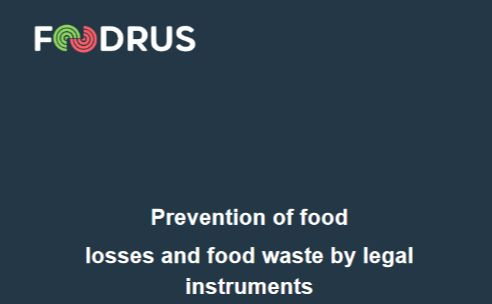Sustainable Food Systems

Prevention of food losses and food waste by legal instruments
09 May 2024
Project's deliverable
The report "Prevention of food losses and food waste by legal instruments" provides an overview
of the results of the investigation process carried out by the Foodrus partners across 8 countries in Europe (Spain, Slovakia, Denmark, Austria, Bulgaria, Greece, Romania and Hungary).
The document is composed of 7 main chapters:
- Chapter 1 provides an overview of the aims of the deliverable and of the methodological approach that partners have followed for the data collection and data validation process.
- Chapter 2 provides information regarding the current status of food loss and food waste across Europe, presenting the baseline information that has been collected through previous studies. The chapter also describes what are the identified food loss and food waste hotspots that partners in the project pilots (Spain, Slovakia, Denmark) have identified as key challenges to reduce food losses and waste given the food loss assessment carried out locally.
- Chapter 3 provides a glimps of the different European policies, directive, regulations and guidelines that prescribe - either directly or indirectly - actions and targets related to the functioning of food systems in Europe.
- In Chapter 4 a closer look at the existing food legislation in the FOODRUS pilots and Associated Regions is provided, with specific investigation of aspects related to the existence of prevention and reduction taregets and measures, the existence of measuring and monitoring tools, and the handling of food donations and food surplus redistribution.
- Chapter 5 and Chapter 6 present, respectively, the stage specific legal and economic barriers identified for each stage of the food value chain (Chapter 5) and, the cross-sectoral barriers that to food waste reduction that affect multiple stages of the food value chain at the same time (Chapter 6).
- Chapter 7 provides the final recommendations on what are the approaches to correct the existing
barriers, and what are the game change factors that can support an accelerated transition towards more sustainable food systems. In terms of results, the investigation process has led to the identification of 40 key barriers across the entire value chain. These barriers have been classified in legal barrier, when they were the result of the application of EU or national regulation, and in economic barrier, when the nature of the barrier closely related to the practices dictated by the specific economic system in which European food businesses operate









